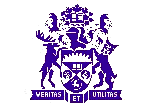|
|
UNDERGRADUATE PROGRAM
The undergraduate program in engineering consists of a common first year of courses, followed by three years of study devoted to one of Chemical, Civil, Electrical, Computer, Software, Integrated or Mechanical Engineering. Note: Engineering is a limited enrolment program. Priority shall be given to Canadian citizens and permanent residents with not more than 10% of the places in the first year of Engineering to be available to applicants who are neither Canadian citizens nor permanent residents.
ENGINEERING SUBJECT CATEGORY TABLE
| Abbreviation: |
Subject: |
|
CBE |
Chemical and Biochemical Engineering |
|
CEE |
Civil and Environmental Engineering |
|
ECE |
Electrical and Computer Engineering |
|
ES |
Engineering Science |
|
MME |
Mechanical and Materials Engineering |
|
SE |
Software Engineering |
COMPLEMENTARY & ELECTIVE COURSE REQUIREMENTS
Complementary Studies
The Canadian Engineering Accreditation Board (CEAB) requires that engineering programs include the following areas of study, considered essential to the education of an engineer: - The impact of technology on society: the course which satisfies this requirement is ES 498F/G.
- Engineering Economics: the course which satisfies this requirement is Business Administration 299.
- Oral and Written Communications: the courses which satisfy these requirements are ES 211F/G and the Fourth Year Engineering Project Course in each program.
- The central issues, methodologies and thought processes of the Humanities and Social Sciences; for a list of courses which satisfy this requirement please consult the Faculty Web Site or the academic counsellors.
- The minimum number of courses required vary according to the program. For details, see individual departmental regulations.
Elective Courses in Complementary Studies (Non-Technical)
A complementary studies elective course is any course that fulfills the criteria of the Canadian Engineering Accreditation Board (CEAB) as described in the preceding section. Selection of the Non-Technical Elective must be approved by the Department Counsellor to satisfy the CEAB requirements of subject matter that deals with central issues, methodologies, and thought processes of the humanities and social sciences. To assist students in the selection of suitable courses, a list of acceptable courses is published each year. Language courses whose course content imparts language skills cannot be used to satisfy the complementary studies requirements.
DESIGN REQUIREMENTS
Engineering design integrates mathematics, basic sciences, engineering sciences, and complementary studies in developing elements, systems and processes to meet specific needs. It is a creative, iterative and often open-ended process subject to constraints which may be governed by standards or legislation to varying degrees depending upon the discipline. These constraints may relate to economics, health, safety, environmental, social, or other pertinent factors. The engineering curriculum must culminate in a significant design experience which is based on the knowledge and skills acquired in earlier course work and which preferably gives students an exposure to the concepts of team work.
ENGINEERING PLUS PROGRAM (CONCURRENT DEGREES)
The Faculty of Engineering offers a number of concurrent degree programs that prepare students to cross traditional borders in their careers. These programs include Engineering and Business, Engineering and Medicine, Engineering and Law, and Engineering and Computer Science among many others. Special programs can be designed to meet the expectations of individual students. For detailed offerings, consult with the Faculty academic counsellors.
|
|

